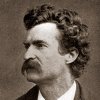“ Fear is contrary to anger, and is often the motive which restrains it ”
Adam Smith, The Theory of Moral Sentiments (1759). copy citation
| Author | Adam Smith |
|---|---|
| Source | The Theory of Moral Sentiments |
| Topic | anger fear |
| Date | 1759 |
| Language | English |
| Reference | |
| Note | |
| Weblink | https://en.wikisource.org/wiki/The_Theory_of_Moral_Sentiments |
Context
“or, even without any such acknowledgments, when the public interest requires that the most mortal enemies should unite for the discharge of some important duty, the man who can cast away all animosity, and act with confidence and cordiality towards the person who had most grievously offended him, seems justly to merit our highest admiration.
The command of anger, however, does not always appear in such splendid colours. Fear is contrary to anger, and is often the motive which restrains it; and in such cases the meanness of the motive takes away all the nobleness of the restraint. Anger prompts to attack, and the indulgence of it seems sometimes to show a sort of courage and superiority to fear.”
source



